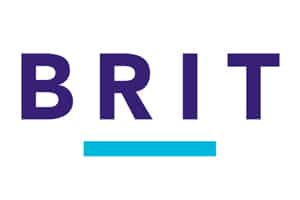Our Approach
Transformation
Enterprise agility isn’t created by spinning up Agile teams. To become a nimble and responsive organisation, you need to look at the whole system. Organisations are complex systems, so taking a framework off the shelf is not the path to agility. Instead, this is achieved through a deep understanding of your system, along with the principles of agility, and then the key ingredient – the courage to experiment.

So you know you need to change, but...
.. previous change programmes have only re-organised the deckchairs, rather than fixing the hole in the ship.
.. you find that people often resist change or just change the words they use instead of their behaviours.
.. you’ve heard the solution lies in some off-the-shelf scaling solution, but you’re sceptical.
Would you like people to own the change in their organisation? Would you benefit from a solution tailored to meet your specific business issues?
Empirical change over episodic change
Working with people across the globe to drive change in their organisations, we have found a lot of frustration about change initiatives. A McKinsey study showed that change initiatives fail 80% of the time. When we speak to people impacted by the change, they fail to deliver 94% of the time.
That’s why change needs to change. For organisational culture to be transformed, we have to embrace its inherent complexity. Rather than predicting and planning our way to success, it’s about harnessing curiosity like a scientist. Forming hypotheses, experimenting and applying good practice, and adapting our approach based on new data and observations.
At Beliminal, we believe that change and experimentation should be co-created and fully participatory. With this approach, organisations are empowered to grow a culture that pursues excellence, with the skills to adapt when and where the need is greatest.
This requires trying small changes over one or two large jumps. These steps allow us to try multiple possibilities, identify interdependencies and surface unintended outcomes.
In addition, they provide significantly more opportunities for safe-to-try involvement, increasing buy-in, ownership and motivation.
Piloting change
Pilots are areas for experimentation that test hypotheses by immersing people in a change, while monitoring impacts.
Piloting is a feedback-driven approach that allows us to iterate on changes and gain more clarity as we work toward a solution.
Discover, Orient and Pilot
Beliminal’s transformation offering is based on three steps, that we cycle around.
Discovery
Through a relevant combination of survey assessment tools, fact-finding interviews and workshops with stakeholders, we uncover perspectives and challenges in the system as it is. An initial discovery can be done independently.
Orient
After thoroughly reviewing the findings and insights from Discovery, we decide how best to move forward together.
We form a guiding coalition to support the transformation process and ensure that the right perspectives inform decision-making.
Orient gives you:
- Clear outcomes and measures for the transformation
- A guiding coalition to guide and support the transformation
- A forum where diverse perspectives can be heard
- Executive briefings and a boost in knowledge
- A defined pilot area to drive the transition
Piloting
The pilot is an iterative process to test and learn, and co-create a future state through a participatory change process.
We have our destination. To achieve this, we work to embrace the inherent complexity of the organisational culture and social system. Rather than seeking to predict and project plan our way to success, we navigate to our destination based on the reality of the current climate and context, steering our path toward the goal.
Pilot gives you:
- A participatory change approach
- Tools and techniques to identify challenges and opportunities
- A framework for implementing and measuring change within the pilot area
- A safe-to-fail approach to learning what works
- Teams empowered to take action
- A bespoke and proven Agile delivery approach
Would you like an approach that solves real organisational issues?


















